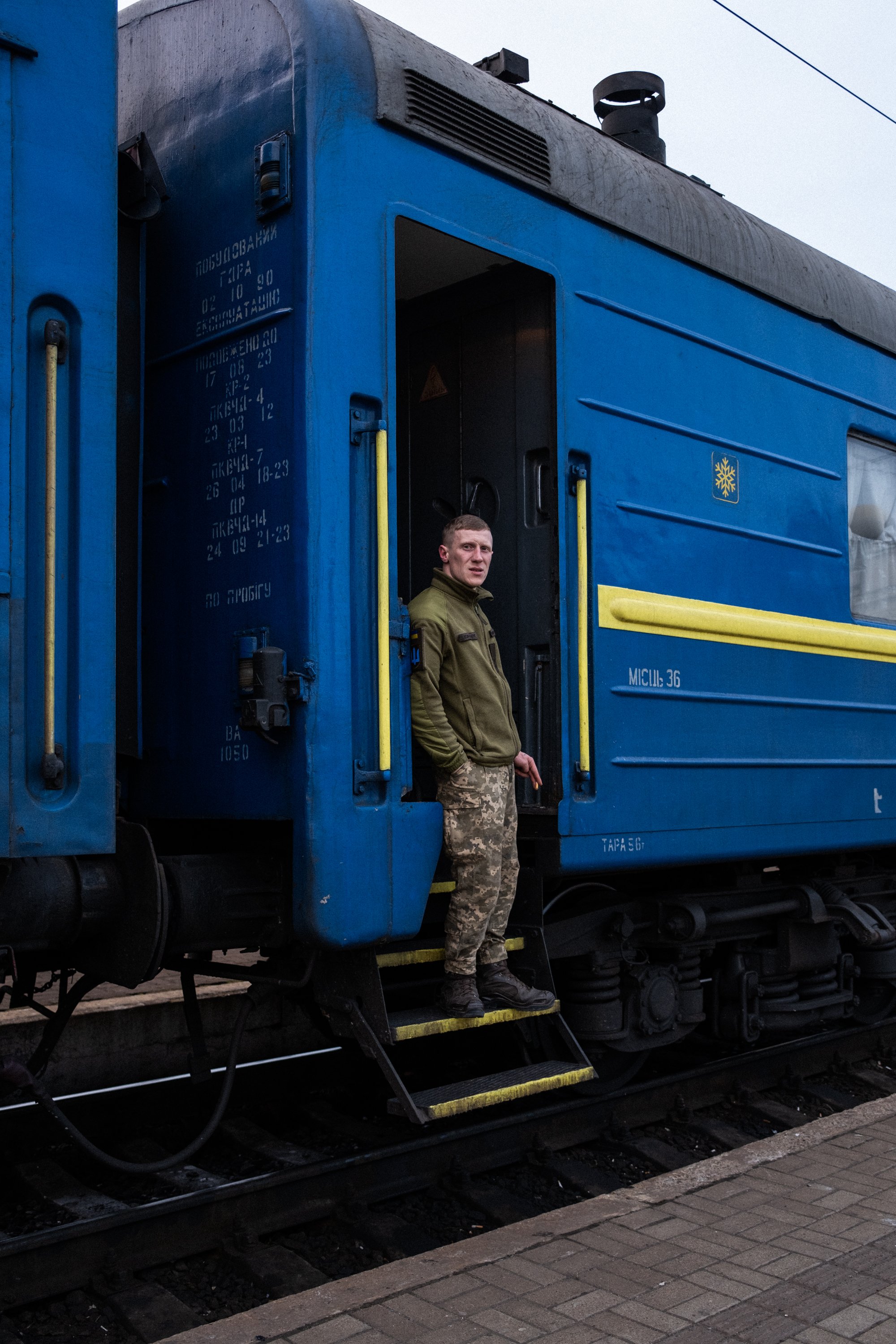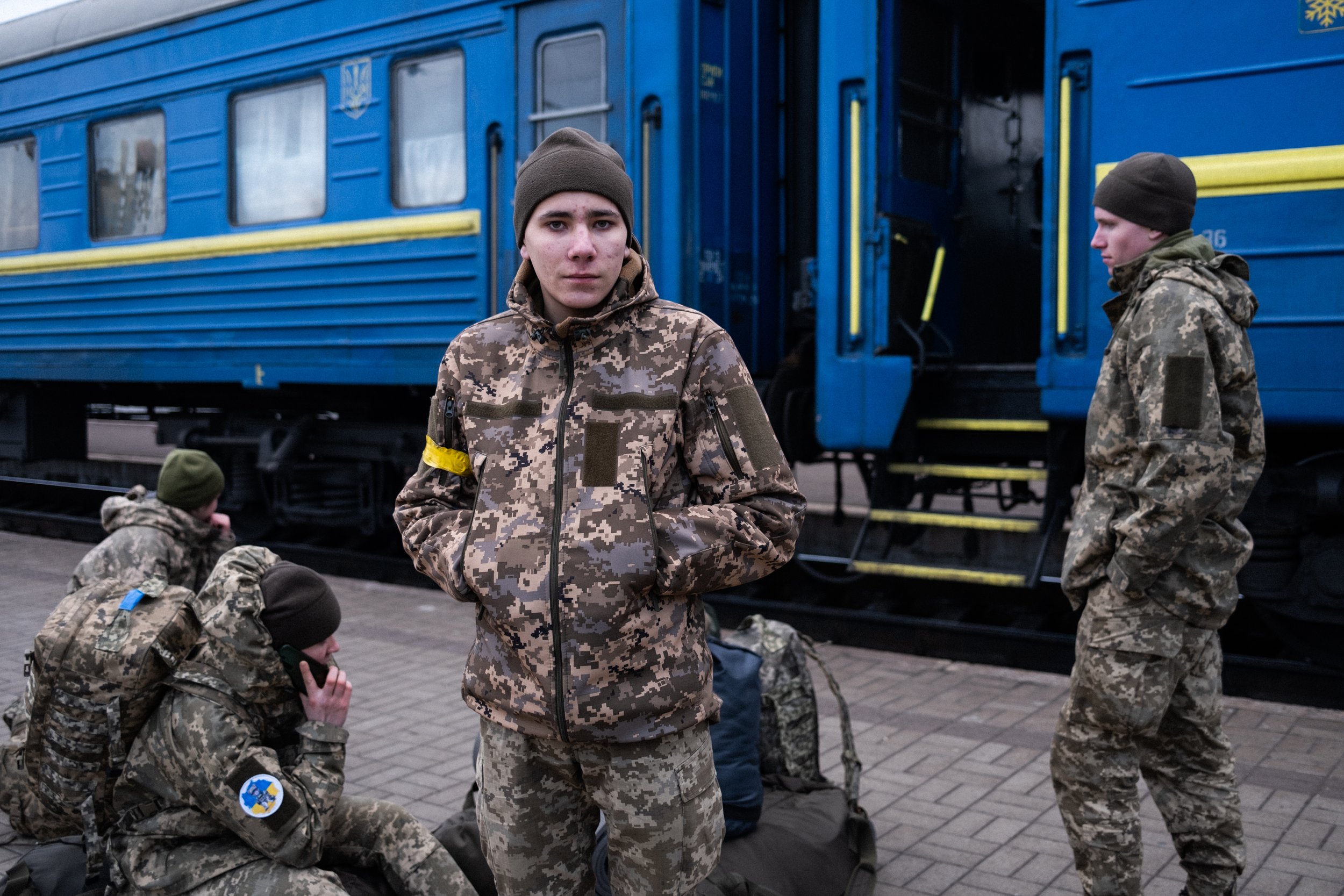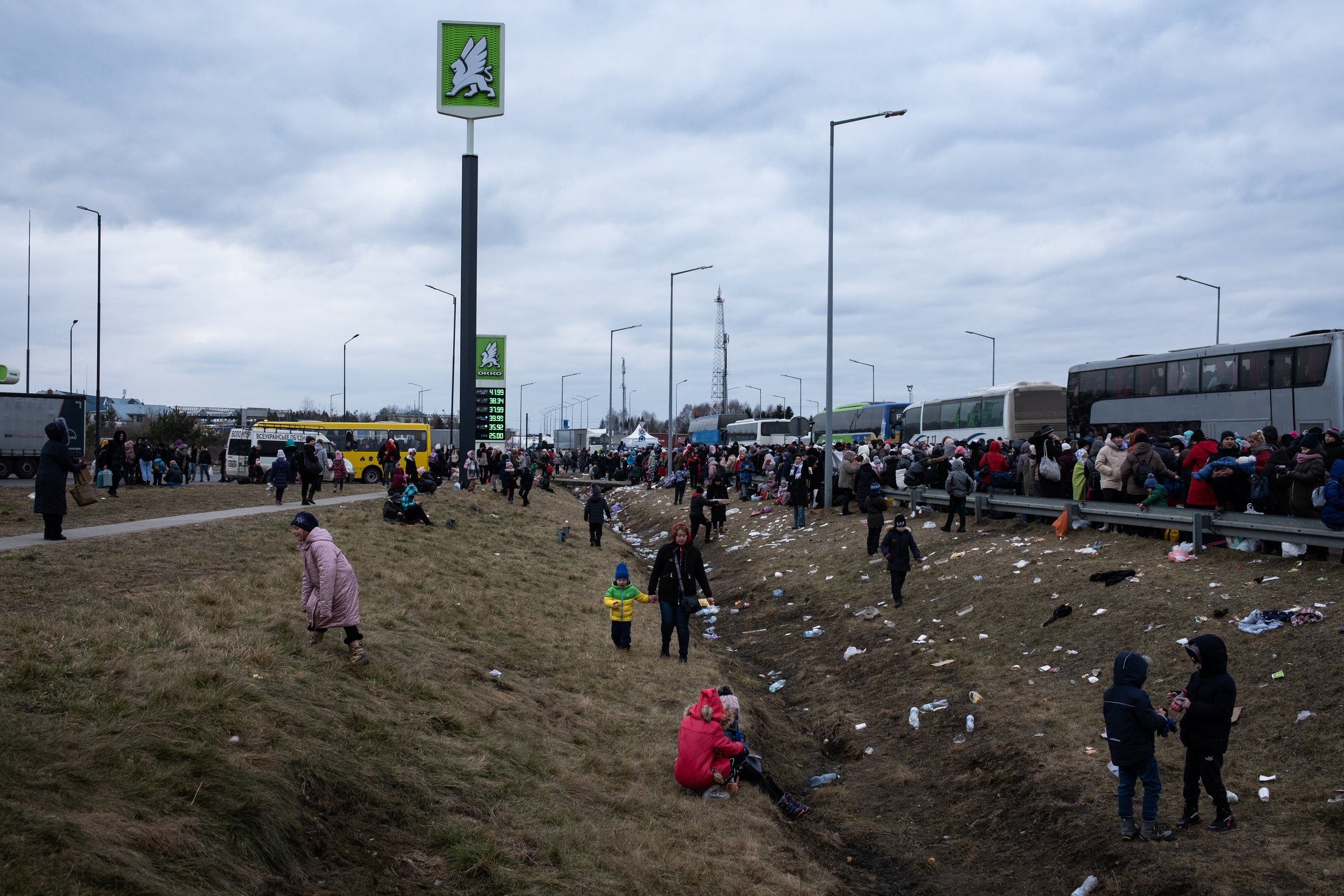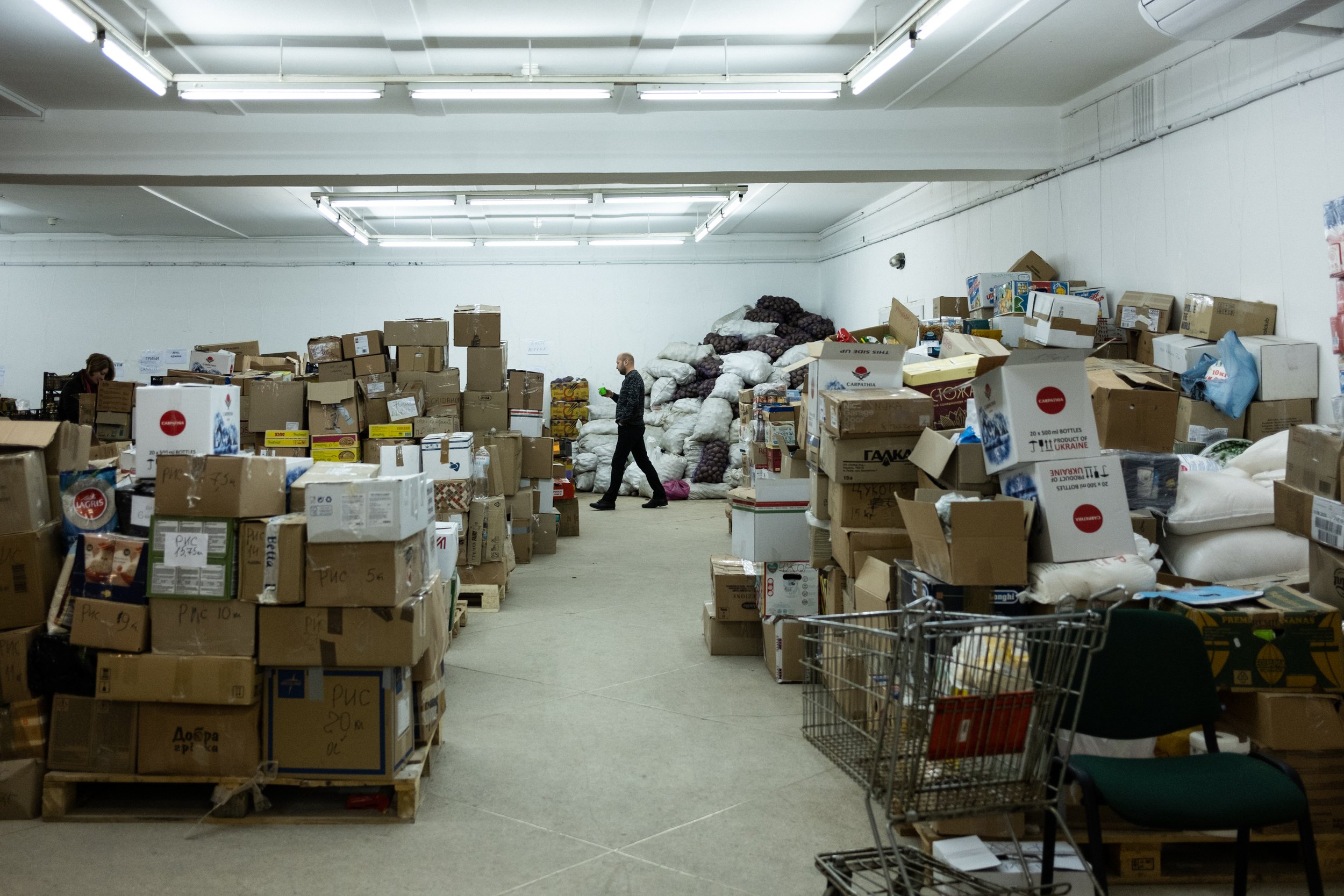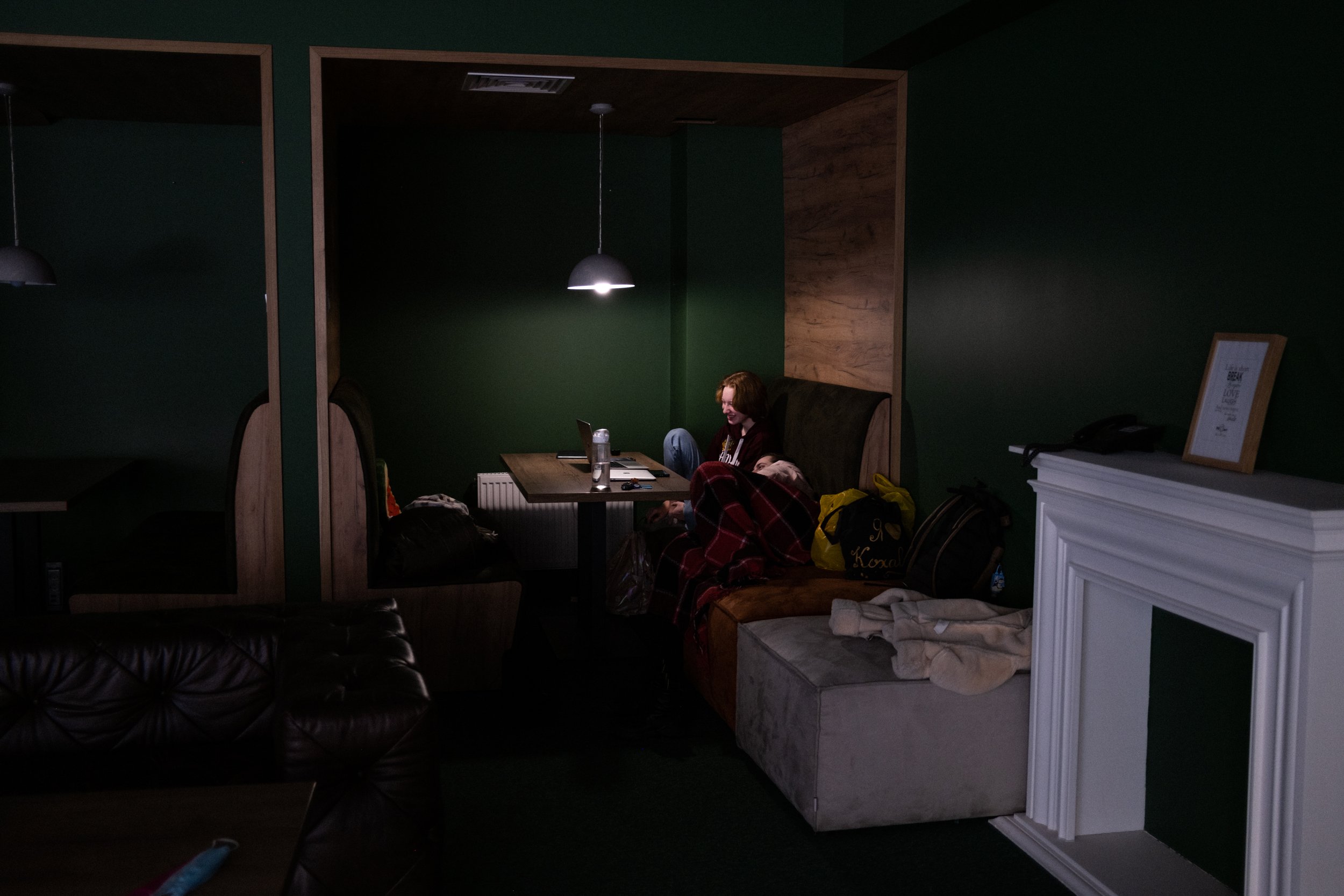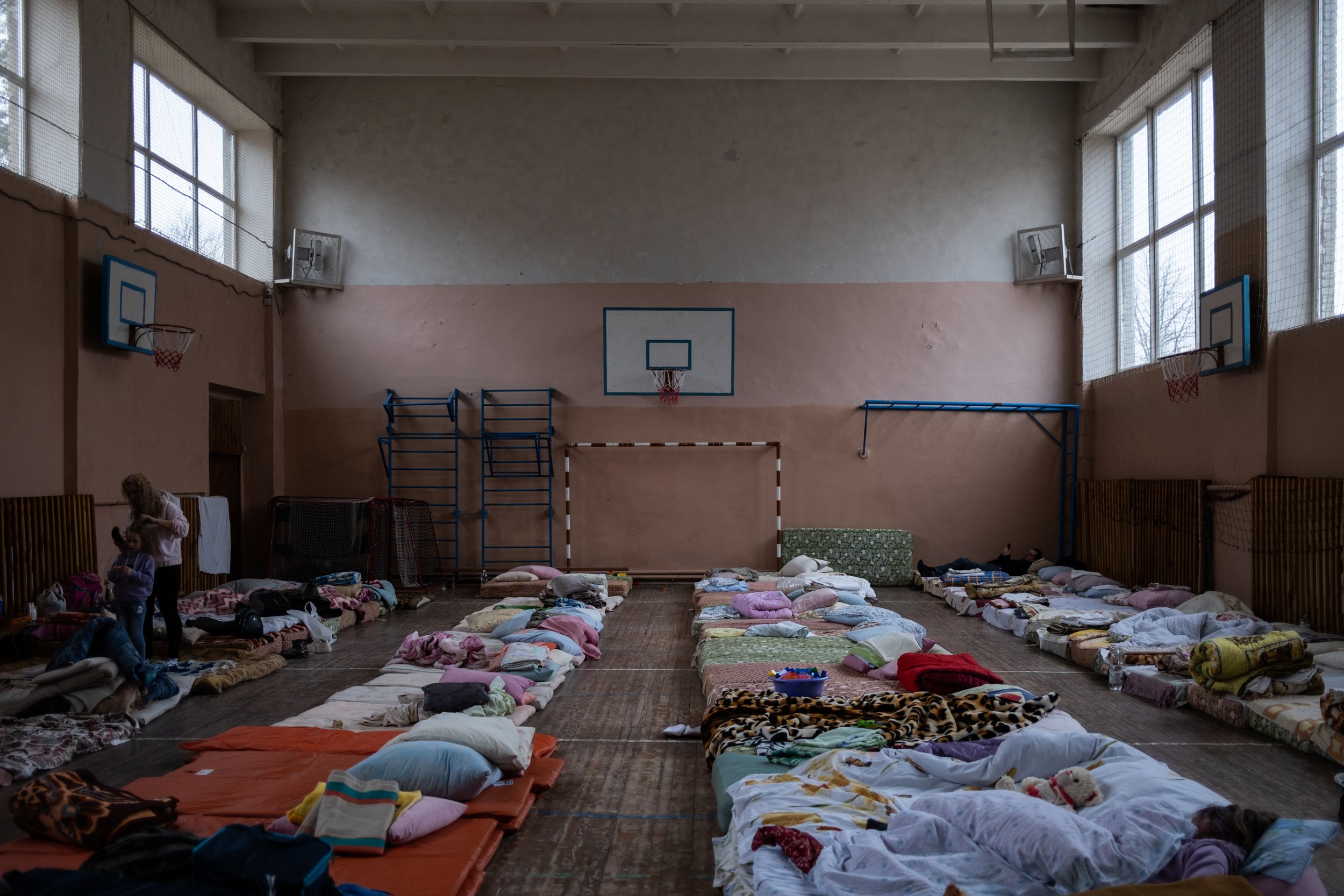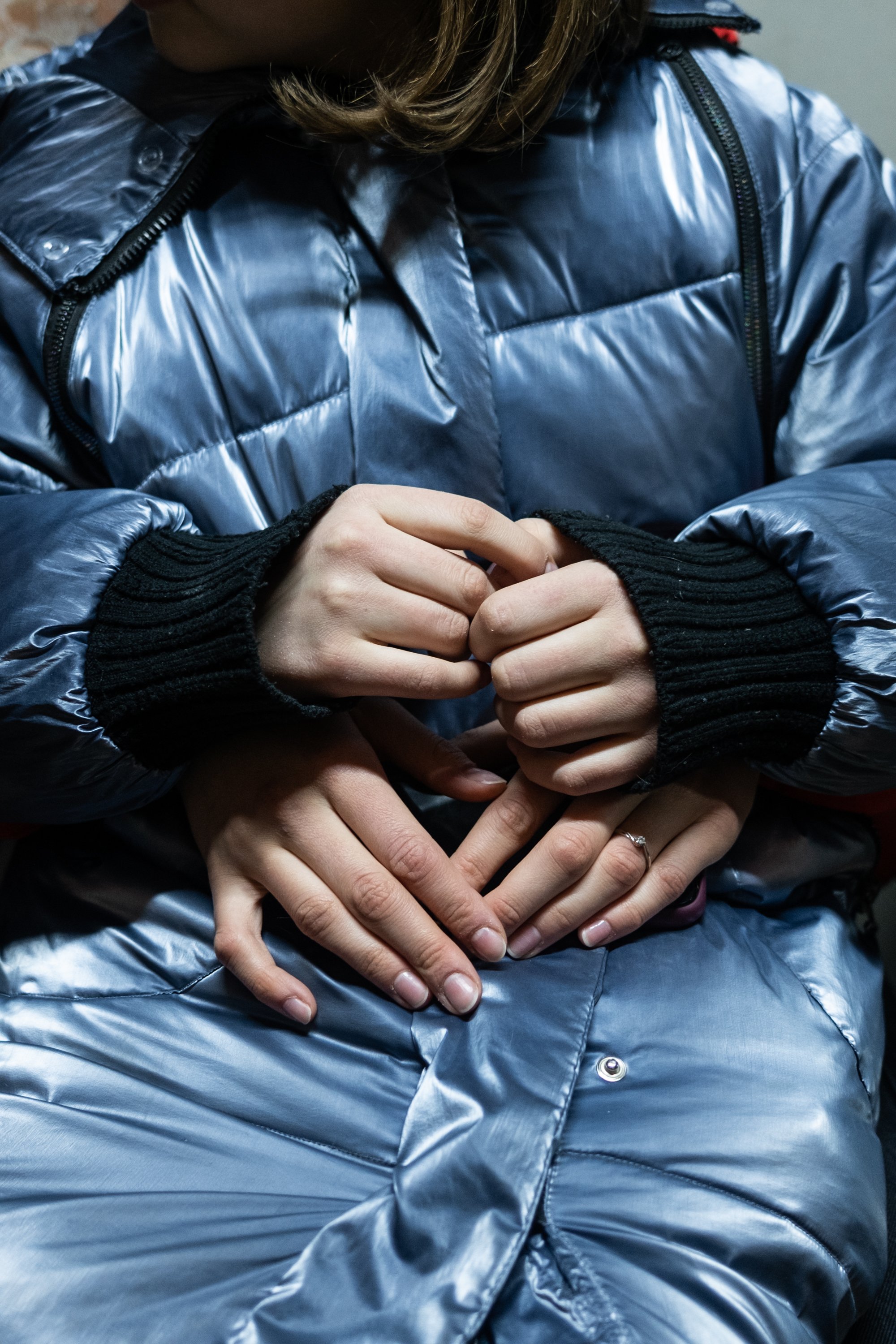On February 24, Russia invaded Ukraine. The former country of the Soviet Union is then forced to defend itself. The regular Ukrainian army and the territorial defenses made up of civilians are facing the Russian armed forces and we are witnessing one of the biggest migration crises of the century, with more than 10 million displaced people. Women and children have to flee their homes under the threat of bombing, leaving behind men and memories, with the hope of returning as soon as possible.
The country, bruised by the fighting in the East, is organizing resistance from the West. Between NGOs, the relocation of embassies, the arrival of journalists and the mass influx of refugees, Lviv, the capital of Ukrainian culture in the west of the country, became the capital of the "free world" in the space of a few weeks. Against a backdrop of anti-bombing sirens, humanitarian aid and defense organization, a new life is organized between those who leave and those who stay.
No more political, social or cultural differences but simply the duty to face the Russian neighbors.



